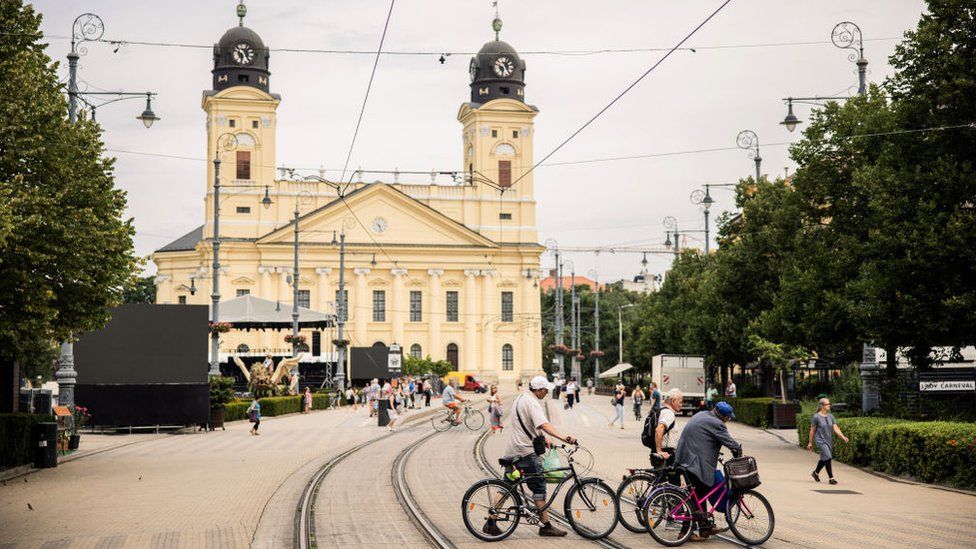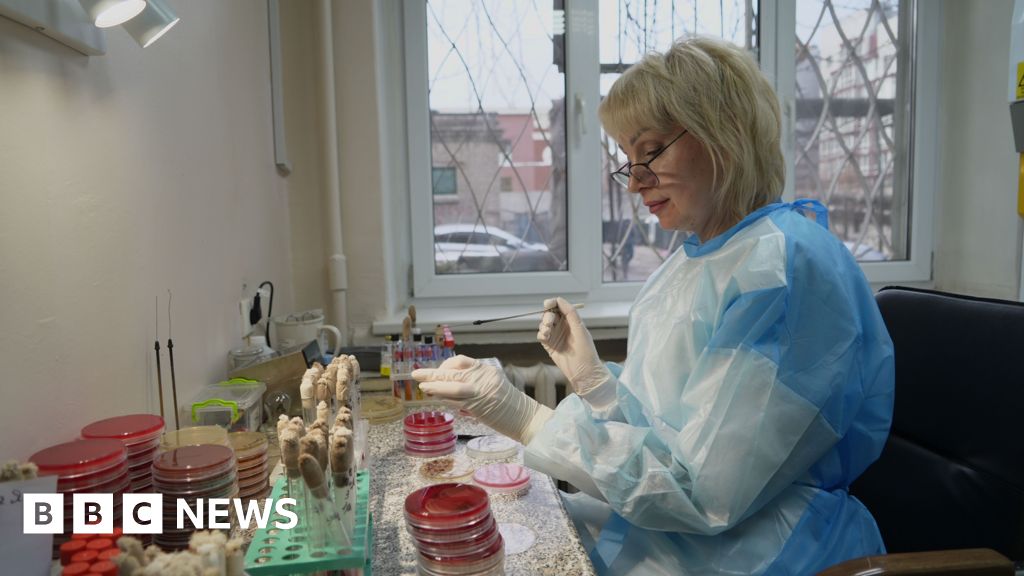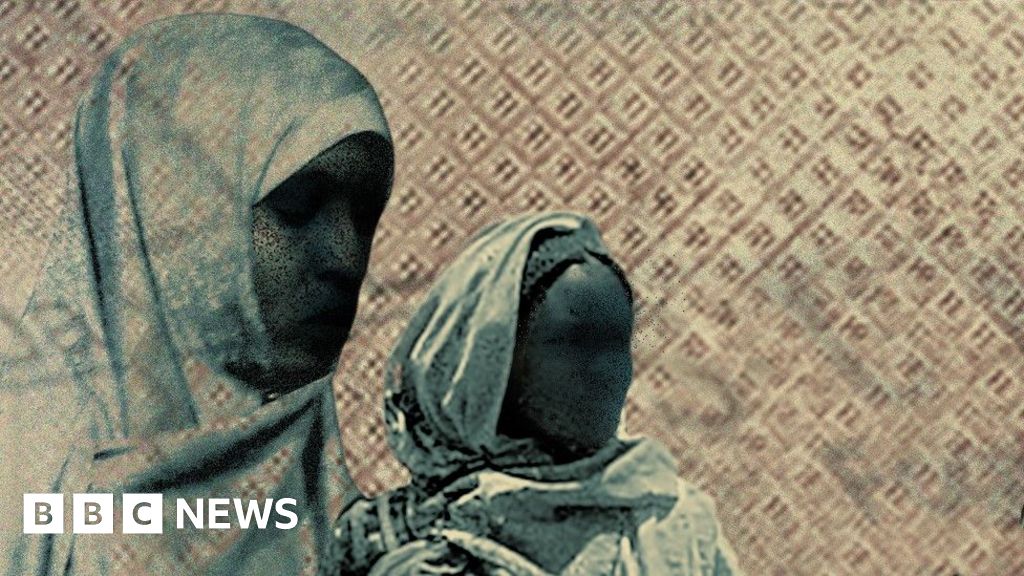ARTICLE AD BOX
 Image source, Getty Images
Image source, Getty Images
Debrecen in eastern Hungary is now home to multiple new factories
By Nick Thorpe
BBC News, Hungary
"We do not intend to become the world leader," said Hungary's foreign minister in Beijing last October, about his country's ambitious plans for manufacturing Electric Vehicle batteries, "because the world leader is China".
China has an astonishing 79% share of the lithium-ion global battery manufacturing capacity, ahead of the US on 6%. Hungary is now third with 4% and aims soon to overtake the Americans, explained Peter Szijjarto, during his visit to China.
With 36 factories already built, under construction or planned, his words were no idle boast.
Viktor Orban's Fidesz government has trumpeted its "opening to the East".
When it comes to maintaining strong economic ties with Russia, Budapest draws considerable criticism. More important in economic terms are the growing ties with China and South Korea. Electric vehicles are the cornerstone of that push, and for once Hungary is attracting the envy of fellow EU members, rather than their approbation.
By this summer, there will be 17 flights a week between Budapest and Chinese cities. In 2023, China became the single biggest investor in Hungary with €10.7bn.
Looking south from the tower of the Reformed Great Church in Debrecen, the solid grey building blocks of China's CATL factory stretch into the distance. The world's biggest battery maker has a big foothold in eastern Hungary.
Hungary is hoping to become the second biggest supplier of lithium-ion global batteries in the world
Until last year sunflowers and oilseed rape painted the landscape green and yellow. Now the Chinese SemCorp separator foil factory and the Chinese EcoPro cathode plant have sprung up too.
Go past the construction site of Debrecen's new, all-electric BMW factory and you will find another Chinese battery maker, Eve Energy.
Meanwhile, bulldozers in southern Hungary are stripping the soil over a 300 hectare-site to prepare it for a Chinese "gigafactory" for BYD electric cars.
South Korean and Japanese factories have already started manufacturing batteries or battery components here.
"Hungary is in the centre of Europe and in close proximity to the biggest industrial players in the automotive industry," says Noemi Sidlo from CATL's Hungarian division.
It was an obvious destination and the local and national governments were keen to help, she explained.
Mr Orban's Fidesz government has bent over backwards to attract Chinese investment, promising CATL €800m in tax incentives and infrastructural support to clinch the deal - more than 10% of the €7.3bn investment.
Add to that Chinese investment in a high-speed railway intended to connect Central Europe to the ports of Thessaloniki and Piraeus and Budapest's enthusiasm for Chinese investment is even clearer.
The feeling appears to be mutual. When Chinese President Xi Jinping comes to Europe in May, he will visit just three countries - France, Serbia, and Hungary.
What could still go wrong for Viktor Orban's plans?
Rather a lot, say his critics. Environmental protests against the swathe of factories are growing, despite near-silence in the Fidesz-controlled media about potential problems.
Image source, Getty Images
Image caption,There have been protests in Debrecen about plans to open more factories there
The mayor of Debrecen, Laszlo Papp, has refused to talk to the BBC.
Repeated emails to the foreign ministry and the Hungarian Investment Promotion Agency have gone unanswered.
Opponents complain that there is no way to challenge the projects locally because they have been granted "enhanced national interest" status.
South of Debrecen lies the pretty village of Mikepercs which has become increasingly dwarfed by construction sites.
"None of us mothers are against green cars," says local campaigner Eva Kozma, "but it is incredibly unfair they built such an enormous factory here, without asking the local people."
She points to environmental issues caused by battery factories elsewhere in Hungary: "That's not a green future if everyone here gets cancer, just because in other towns people who are luckier than us can flit around in their nice green cars."
Noemi Sidlo from CATL insists her fears are ungrounded.
Eva Kozma, a campaigner, says that the local community should have been consulted about the building of factories
Water supply is also a major headache in Debrecen.
Situated on the Great Hungarian plain, rainfall is in decline, underground water supplies are depleted, and government plans have so far come to little to retain more of the waters that flow through the Danube and Tisza rivers.
Hungary risks trading its status as a water superpower, to become an electromobility superpower. Maps from the 19th Century show much of the current surface of the country covered in water.
Another problem is labour, in a country where unemployment is below 5%.
CATL alone will need 9,000 workers, but the Hungarian government rides to power in election after election on a slogan of "keep migrants out".
The right-wing Our Homeland Movement recently highlighted the growing number of Turkish workers in Debrecen, building the BMW plant.
Another concern among critics is that cheap labour, cheap land, and generous government incentives will turn Hungary into a "servant-state" of Chinese and South-East Asian companies.
The government acknowledges there is a risk that wages will be kept low and domestic research and development will be affected.
"We have to convince the investors, not only to bring production here, but also research," Balazs Orban, political director of the Prime Minister's Office told the BBC.
"How we merge their research with the Hungarian companies. This is the biggest challenge for the upcoming 10 years."

 8 months ago
22
8 months ago
22








 English (US) ·
English (US) ·